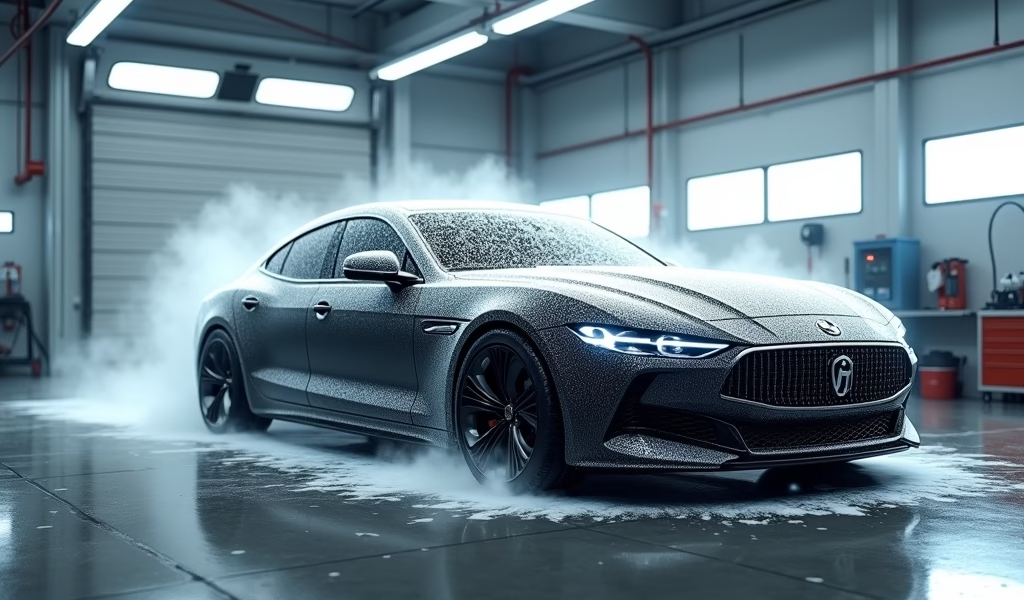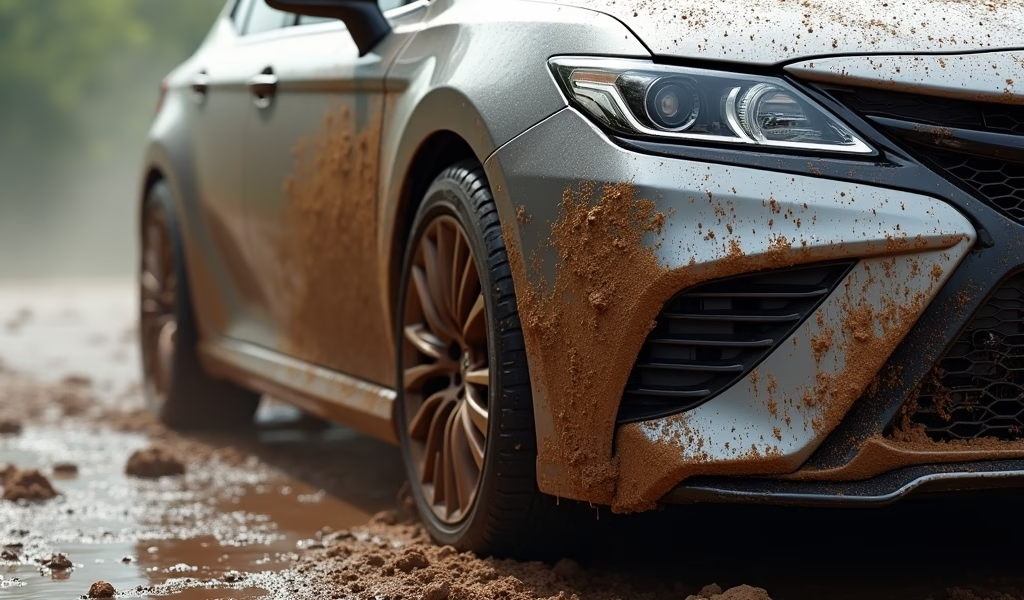Overview
This article provides an in-depth guide to choosing and using specialized car wash soaps for pressure washers, highlighting five top products while explaining their benefits over household alternatives. The guide emphasizes proper washing techniques, common mistakes to avoid, eco-friendly options, and the importance of using dedicated pressure washer soaps to protect your vehicle’s paint and maintain its appearance.
Table of Contents
- Introduction to Pressure Washer Car Wash Soaps
- Why You Need Special Soap for Pressure Washers
- Top 5 Car Wash Soaps for Pressure Washers
- How to Properly Use Car Wash Soap with Your Pressure Washer
- DIY Car Wash Soap Alternatives
- Common Mistakes to Avoid
- Eco-Friendly Car Wash Soap Options
- Conclusion
- Frequently Asked Questions
Introduction to Pressure Washer Car Wash Soaps
Listen, I’ve been wrenching on cars and cleaning them for over 20 years, and if there’s one thing I’ve learned, it’s that using the right car wash products makes all the difference. When it comes to pressure washing your vehicle, you can’t just grab any old soap off the shelf. Car wash soap for pressure washer use is specially formulated to work with the high-pressure application and create that thick, clingy foam that helps lift dirt without scratching your paint.
I remember the first time I used regular dish soap in my pressure washer. Big mistake! Not only did it not foam properly, but it stripped away the protective wax and left my black Mustang looking duller than a cloudy day. That expensive lesson taught me why dedicated pressure washer soaps matter.
In this guide, I’ll break down the top 5 car wash soaps for pressure washers, explain what makes them special, and share some pro tips on getting that showroom shine without paying detailer prices. Whether you’re a weekend warrior or someone who takes pride in maintaining your ride, choosing the right soap will save you time, money, and potentially costly paint corrections down the road.
Why You Need Special Soap for Pressure Washers
Let’s get something straight – using regular car soap or household cleaners in your pressure washer isn’t just suboptimal, it can actually damage your equipment and your vehicle. Here’s why you need dedicated car wash soap for pressure washer use:
First, pressure washer soaps are formulated with lower viscosity, making them flow properly through your machine’s injector system without clogging it up. Regular soaps can gum up the works faster than a candy bar in your pocket on a hot summer day.
Second, these specialized formulas are designed to create thick, clingy foam when aerated through a pressure washer. This foam adheres to vertical surfaces long enough to break down road grime, bug splatter, and other contaminants without running off immediately. According to Consumer Reports’ automotive testing, proper foam dwell time is critical for safe dirt removal.
Third, quality pressure washer soaps contain lubricants that allow dirt particles to slide off your paint instead of scratching it. This is what we call in the business “lubricity” – that slick feeling that helps your wash mitt glide across the surface without creating those dreaded swirl marks.
Finally, they’re pH-balanced specifically for automotive finishes. Your car’s clear coat is more delicate than you might think, and harsh alkaline cleaners (like many household products) can gradually etch it, leading to premature aging and oxidation. The right car wash soap maintains a neutral pH that’s tough on dirt but gentle on your paint.

Top 5 Car Wash Soaps for Pressure Washers
After testing dozens of formulations on everything from my own daily driver to customer vehicles in the shop, I’ve narrowed down the best car wash soaps for pressure washer use. These picks balance cleaning power, paint protection, value, and environmental impact.
1. Chemical Guys Honeydew Snow Foam
This stuff is the real deal. Honeydew Snow Foam creates mountains of thick, clingy foam that sticks to your paint for 5+ minutes, giving it plenty of time to loosen dirt. The pH-neutral formula won’t strip wax or sealants, and the honeydew scent is pleasant without being overpowering.
What makes it stand out is its concentration level—you only need about 2-3 ounces per wash, meaning a gallon can last you 40+ washes. I’ve used this on everything from neglected work trucks to high-end sports cars, and it performs consistently well across the board. It works best when used with a foam cannon, but still performs admirably through a standard soap injector.
One thing to note: in extremely hard water areas, you might need to use a touch more product to achieve maximum foaming action.
2. Adam’s Ultra Foam Shampoo
Adam’s Ultra Foam is my go-to for maintenance washes on vehicles that aren’t heavily soiled. The lubricity in this formula is exceptional, which means less chance of inflicting those annoying swirl marks during the washing process. It generates respectable foam even in cooler temperatures, which can be an issue with some other brands.
What I particularly appreciate is how well it rinses—leaves absolutely no residue behind, just a clean surface. The polymers in the formula add a slight gloss enhancement that’s noticeable even on older paint. At around $25 for a gallon, it’s not the cheapest option, but the quality justifies the price for those serious about their car wash kit.
3. Meguiar’s Gold Class Car Wash
An old reliable that’s been around forever, Meguiar’s Gold Class remains one of the best values in the pressure washing game. While not specifically marketed as a pressure washer soap, it works exceptionally well in foam cannons and soap injectors due to its concentrated formula.
The cleaning power strikes a perfect balance—strong enough to cut through road film but gentle enough for weekly use. I’ve found it particularly effective on light-colored vehicles where dirt shows more prominently. You can often find this on sale at auto parts stores, making it even more attractive for the budget-conscious detailer.
One small drawback: it doesn’t produce quite as thick a foam as some newer formulations, but the cleaning performance is still top-notch.
4. Karcher Car Wash & Wax
If you’re using a Karcher pressure washer (which many homeowners do), their Car Wash & Wax formula is specifically designed to work with their systems. What sets this apart is the wax component—it leaves a light protective layer that enhances water beading between washes.
The foam density is moderate, but it clings well enough to vertical surfaces to work effectively. I’ve found it particularly useful during summer months when you’re washing more frequently, as the added wax protection helps maintain your finish between more intensive detailing sessions.
The value proposition here is solid, especially if you catch it on sale with other Karcher products.
5. Sun Joe SPX-FCS1G Premium Snow Foam
Rounding out the list is Sun Joe’s entry, which is a sleeper hit among professional detailers. Developed specifically for pressure washer use, this formula produces exceptionally thick foam even through basic soap injectors, not just foam cannons.
What impresses me is the biodegradability—it breaks down naturally after use, making it a more environmentally conscious choice. The cleaning power is substantial enough for quarterly deep cleans but gentle enough not to damage your protection layers.
While less known than the big brands, Sun Joe has put serious R&D into this formula, and it shows in the performance. It’s also one of the better values at approximately $0.50 per wash when used as directed.
How to Properly Use Car Wash Soap with Your Pressure Washer
Having the right soap is just half the battle—proper technique is what separates a mediocre wash from a truly effective one. Here’s my step-by-step process for getting professional results with your car wash pressure washer:
First, always start with a pre-rinse. Use your pressure washer on a medium setting (around 1200-1500 PSI) to knock off loose debris. Keep the nozzle at least 12 inches from the paint surface and work from top to bottom. This prevents you from grinding dirt particles into your paint during the soap phase.
When it’s time to apply soap, switch your pressure washer to its low setting—usually around 800 PSI. Higher pressure will atomize the soap too much, reducing its effectiveness. If you’re using a foam cannon, adjust it according to the manufacturer’s recommendations (typically 1-2 ounces of concentrated soap per quart of water).
Apply the soap in even, overlapping passes, again working from the roof downward. Don’t rush this step—ensure complete coverage and allow the foam to dwell on the surface for 3-5 minutes. But here’s a critical point: never let the soap dry on the vehicle! If you’re washing in direct sunlight or hot weather, you may need to work in sections.
After the dwell period, switch to a clean microfiber wash mitt and gently wash the vehicle using straight-line motions, not circular patterns. Rinse your mitt frequently in a separate bucket of clean water to prevent redepositing dirt onto the paint.
Finally, perform a thorough rinse with clean water, again working from top to bottom. For the best results, remove the soap nozzle and use a standard rinse nozzle to ensure all soap residue is removed. A sheeting rinse (where you bring the nozzle close to the panel to create a sheet of water) can help minimize water spots during drying.
Remember that even with the best technique, you should never pressure wash damaged paint, loose trim pieces, or sensitive electronics like convertible tops or older headlight seals. As The Drive notes in their pressure washer guide, using too much pressure on delicate areas can cause expensive damage.
DIY Car Wash Soap Alternatives
Look, I get it. Sometimes you’re ready to wash your car, but you’re out of dedicated soap. While I strongly recommend using proper car wash soap whenever possible, I’ve developed some emergency DIY alternatives over the years that won’t destroy your paint or pressure washer:
The safest homemade solution is a mix of 1 tablespoon of baby shampoo (not regular shampoo!) per gallon of warm water. Baby shampoo is pH-balanced and gentle enough for occasional use. It won’t foam like dedicated car soap, but it’ll clean without stripping protection.
Another workable option is 2 tablespoons of distilled white vinegar mixed with a gallon of water and a drop of dish soap (just a drop!). The vinegar helps remove water spots and mineral deposits, while the tiny amount of dish soap provides some cleaning power without excessive degreasing.
For truly desperate situations, you can use a capful of hair conditioner in a gallon of water. The conditioning agents provide some lubrication to prevent scratching. This is absolutely a last resort, though, and should be followed by a proper wash as soon as possible.
Whatever you do, never use these household products in your DIY solution:
- Laundry detergent (too alkaline and contains brighteners that can damage clear coat)
- Household cleaners like 409 or Fantastic (contain solvents that can etch paint)
- Regular dish soap as your primary cleaner (strips wax and dries out rubber/plastic trim)
- WD-40 or other petroleum products (can stain and damage paint)
Remember: these DIY alternatives are for emergency use only. They’re like the spare tire in your trunk—designed to get you by until you can get back to the proper solution.

Common Mistakes to Avoid
In my two decades working on cars, I’ve seen every pressure washing mistake in the book—some I’ve even made myself. Here are the most common errors you should avoid:
Using too much pressure is the number one mistake I see. Your pressure washer might be capable of 3000+ PSI, but you should never use more than 1500 PSI on automotive paint. Higher pressure can force water past seals, damage decals, and even peel paint in extreme cases.
Skipping the pre-rinse is another classic error. Going straight to the soap phase means you’re essentially rubbing dirt particles across your paint like sandpaper. Always rinse thoroughly first.
Using the wrong nozzle can cause serious damage. Those red or yellow tips (0° or 15°) might be great for blasting concrete, but they’ll wreak havoc on your car. Stick with the 40° white nozzle or, better yet, a dedicated foam cannon.
Washing in direct sunlight causes soap to dry too quickly, leaving water spots and soap residue that can etch into your clear coat over time. Always wash in the shade or during cooler parts of the day when possible.
Using too little soap is counterproductive. Many people try to stretch their car wash soap by diluting it more than recommended, but this reduces the lubricity and cleaning power. Follow the manufacturer’s dilution ratios for optimal results.
Holding the wand too close to the car is asking for trouble. Always maintain at least 12 inches of distance between the nozzle and the paint surface—more for higher pressure settings.
Letting soap dry on the car is a recipe for water spots and soap etching. If you notice an area starting to dry before you’ve rinsed it, reapply soap immediately and rinse promptly.
And finally, not protecting your freshly washed car is a missed opportunity. After all that work, apply a quick spray wax or detail spray while the surface is still slightly damp to lock in that just-washed shine and provide some protection.
Eco-Friendly Car Wash Soap Options
I’ve become increasingly conscious of where all that soapy water ends up after it runs off our driveways. The truth is, many traditional car soaps contain phosphates, nonylphenol ethoxylates, and other chemicals that can harm aquatic life and contaminate water supplies.
Fortunately, there are now excellent eco-friendly options that clean effectively without the environmental impact:
Optimum No Rinse Wash & Shine represents a different approach to car washing entirely. While not specifically a pressure washer soap, it can be used in diluted form in your soap dispenser. What makes it unique is its polymer technology that encapsulates dirt particles, requiring far less water for the entire wash process. It’s biodegradable and phosphate-free.
Eco Touch Waterless Car Wash can also be diluted for use in pressure washers and contains plant-based surfactants rather than petroleum-derived ones. The formula is biodegradable and comes in recyclable packaging.
Chemical Guys Ecosmart RU (Ready to Use) is specifically designed to be environmentally responsible while still producing substantial foam through a pressure washer. It uses water-based technology rather than harsh solvents.
When choosing an eco-friendly soap, look for these certifications and features:
- Biodegradable formula (ideally within 28 days)
- Phosphate-free
- No nonylphenol ethoxylates
- Plant-based surfactants
- Recyclable packaging
- No artificial dyes or fragrances
Beyond the soap itself, you can further reduce your environmental impact by washing your vehicle on grass or gravel rather than pavement when possible, allowing the soil to naturally filter some of the runoff before it reaches storm drains.
Conclusion
After spending countless weekends washing everything from daily drivers to show cars, I can confidently say that investing in quality car wash soap for your pressure washer makes all the difference. The right soap not only cleans effectively but also protects your vehicle’s finish—which is ultimately what preserves its value and appearance over time.
Whether you opt for the luxurious foam of Chemical Guys Honeydew, the wash-and-wax convenience of Karcher’s formula, or one of the eco-friendly options, the key is consistency and proper technique. Remember that even the best soap can’t compensate for poor washing practices.
Your pressure washer is a powerful tool that, when paired with the right soap and used correctly, can deliver professional-quality results right in your own driveway. Just remember to keep the pressure reasonable, use the right nozzles, and never let that soap dry on the paint.
Next time you’re admiring those water beads rolling off your perfectly cleaned finish or catching your car’s reflection in a storefront window, you’ll appreciate taking the time to do things right. Your car is likely one of your most significant investments—it deserves proper care with the right products.
Frequently Asked Questions
Can I use regular dish soap in my pressure washer?
No, dish soap will strip protective wax and potentially damage seals in your pressure washer. It’s also too thick for proper flow through injector systems.
How much soap should I use per wash?
Most pressure washer soaps require 1-2 ounces per gallon in your foam cannon reservoir. Always check the manufacturer’s specific dilution recommendations.
Will pressure washer soap damage my car’s wax?
Quality pH-neutral car wash soaps designed for pressure washers won’t remove wax or sealants. Avoid products advertising “wax stripping” properties unless you’re preparing for a new protective coating.
Can I use pressure washer soap on motorcycles?
Yes, but use extreme caution around electrical components and bearings. Keep pressure under 1200 PSI and maintain at least 24 inches of distance from sensitive areas.
How often should I wash my car with a pressure washer?
For most environments, washing every 2-3 weeks is sufficient. If you live in areas with heavy road salt, industrial fallout, or tree sap, weekly washing may be necessary.

